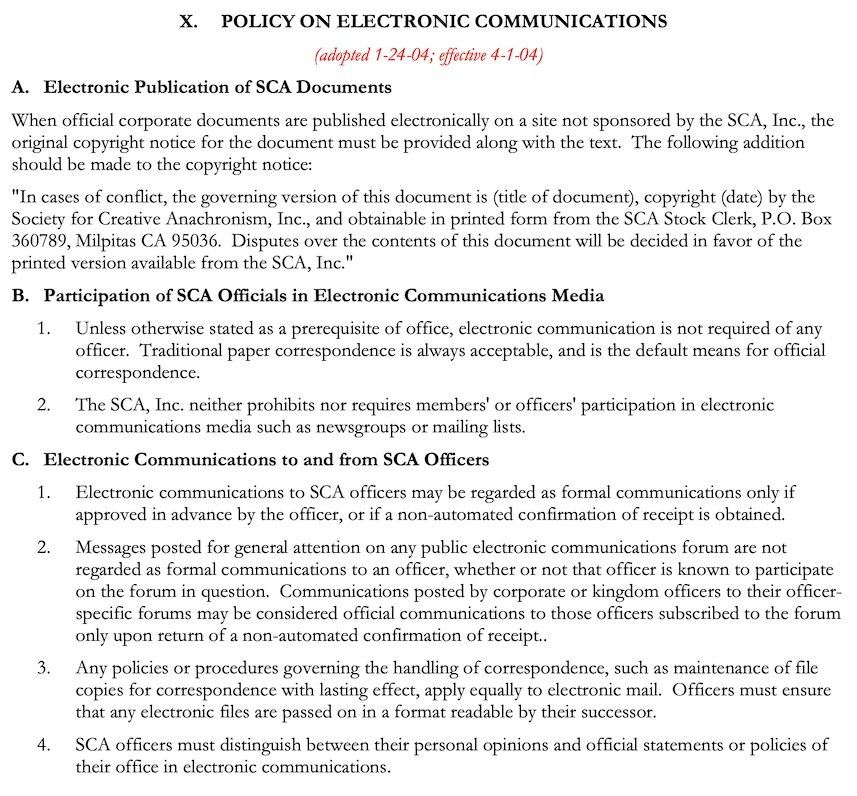TL;DR: SCA web ministers and social media officers can now get consent to publish photos and creative works via informal text messages or emails, instead of requiring signatures on the old-fashioned release forms.
At the start of the year I was intrigued to hear from the Society Social Media Officer that signed release forms were not required by their office as long as there was another form of written consent.
The important thing is to have explicit permission for usage. […] Some groups […] have simply contacted the creator in writing and gained their agreement.
— Society Social Media Officer, 1 January 2025
This means that, for example, if someone posts a photo from a local event, and a local social media officer wants to re-post it to their branch’s social feeds, they do not need to get the photographer to print out and physically sign a “Photographer Grant of Use” form — they can just informally chat or email the photographer and ask “can I share this photo” and get their consent that way.
This policy also applies to folks who preemptively grant permission to share before being asked, either by writing something like “feel free to share this photo” or by using a hashtag that expresses this consent, such as #RegramMySCA.
(This might seem like a minor change, but having served as a local officer and having talked to a lot of others in the same position, I can tell you that the prospect of dealing with the release forms is routinely cited as the primary obstacle to publishing photographs.)
I’m pleased to report that the Society Web Minister has now indicated that this same standard is also sufficient for the webministry.
If the standard was relaxed for Social Media, then I agree it should be no different for the Webministry as the two offices should work in conjunction with one another.
— Society Web Minister, 17 March 2025
This policy interpretation was issued via email, but I believe it applies to the webministry as a whole and can be put into immediate effect in all kingdoms, unless you have a local policy which is more restrictive.
Of course, that doesn’t mean that it’s now a free-for-all in which officers can post any random material we find online — we do need to actually reach out to the creator, in writing, and wait for them to give permission — but I hope that the decreased formality and simpler process here will result an increase in photographs and creative material published to our Society’s websites in the coming year.
[Update, April 12:] This policy interpretation was presented to the SCA’s Board of Directors and upheld during today’s quarterly meeting. The written minutes and video recording should become available over the next month or two.
[Update, April 23:] The discussion of this policy interpretation is at 3:32–3:36 in the recording of the April meeting.
